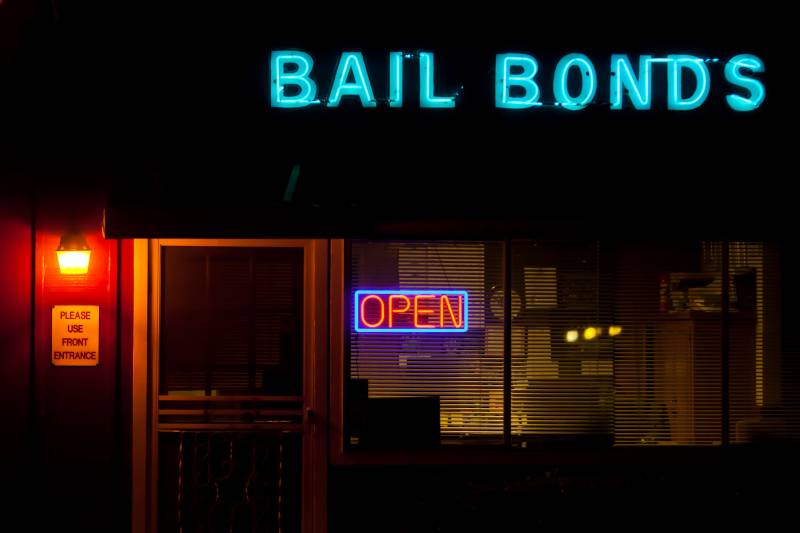Raphling wants voters to reject Proposition 25. Since the ballot measure is a referendum on SB 10, which was signed by then-Gov. Jerry Brown in 2018 — a "yes" vote will allow the legislation to take effect and a "no" vote would overturn the law. Under state law, a referendum puts a new law on hold until voters can weigh in — meaning the 2018 law never went into effect. If Proposition 25 passes, California would become the first state in the nation to completely outlaw money bail.
Proposition 25’s backers say Raphling and other opponents are wrong, and that the measure will actually lead to fewer people being held in jail pretrial, and make the system more fair.
John Bauters, budget advocacy director for the criminal justice reform group Californians for Safety and Justice, pointed to a study by the Public Policy Institute of California which found that the change would result in more than 142,000 people each year spending less time in jail.
Bauters said the new system that would be set up under Proposition 25 would ensure that people don’t lose their jobs, their homes or custody of their kids while they languish in jail.
“There's tons of statistics and data about how people who are held pretrial are more likely to plead guilty to things they didn't commit,” he said. “People who are released pretrial actually get a more pure form of justice.”
What Does the Law Do?
The 2018 bill, SB 10, made money bail illegal in California.
If voters decide to uphold SB 10 by passing Proposition 25, the state would replace bail with a system that generally requires people arrested for misdemeanors to be automatically let go before trial — and for those accused of violent felonies to be kept in jail.
Those accused of lower-level felonies would go before a judge who could keep them in jail or put conditions on their release. Those conditions could include things like mandatory drug treatment, or a weekly probation check-in. The judge’s decision would in part be based on the results of a risk assessment tool that would essentially measure a person’s likelihood of re-offending or skipping out on court.
Each county would have to adopt their own risk assessment tool.
Those tools — based on algorithms that 'learn' more about risk profiles as more data about criminal defendants is entered into them — have become one of the flash points for those opposed to the bail law and Proposition 25.
Too Much Power for Algorithms and Judges?
Raphling, for example, warns that these risk assessment tools could be biased or misleading themselves, noting that someone’s risk of being rearrested can be as much about policing decisions and the color of their skin as that person’s actual conduct.
